Snacks for type 2 diabetes is a chronic condition that occurs when your body doesn’t properly use insulin, a hormone that helps glucose enter your cells. Glucose is a type of sugar that comes from the food you eat and is needed for energy. But because the insulin doesn’t get the glucose into the cell, the glucose builds up in your blood, causing elevated blood glucose (blood sugar).
Since glucose comes from the food you eat, it’s important for people with type 2 diabetes to be mindful of their diet—especially their carbohydrate intake. That’s because carbohydrates are broken down into glucose in the body, which enters the blood and causes your blood sugar to rise (ADA).
It’s not just meal time when you should be thinking about what you’re eating, but also snack time. Opting for snacks for diabetics that include protein, fibre, and healthy fats is key to controlling your blood sugar levels and keeping hunger at bay between meals (CDC, 2021).
Best snacks for diabetics
When people think of snacks, they often think of high-sugar, carbohydrate-rich foods. However, there are many diabetes-friendly snacks that will satisfy your taste buds without spiking your blood sugar.
Read more : Avocado: Health benefits and all you need to know about this wonder fruit
Here are healthy snacks for diabetics.
Greek yoghurt with berries
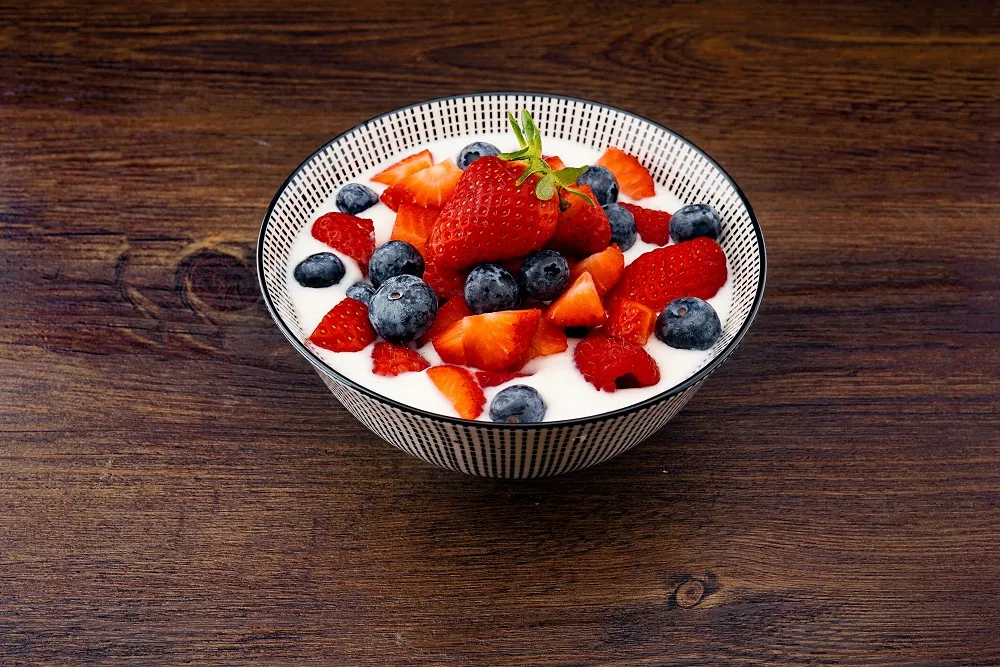
Unsweetened greek yoghurt is an excellent snack for diabetics because it is high in protein and relatively low in carbohydrates.
One single-serve 5.5-ounce or 156 gms container of unsweetened, plain, nonfat Greek yoghurt provides: (USDA, 2019)
- Calories: 92
- Protein: 16.1g
- Fat: 0.6g
- Carbohydrates: 5.7g
- Calcium: 173mg, 13% of the daily value
Pairing yoghurt with blueberries, strawberries, or raspberries can add natural sweetness to your yoghurt. Plus, berries are naturally low in sugar and a good source of fibre. One-half cup of raw raspberries provides 4 grams of fibre, 7.3 grams of carbohydrates, and just 2.7 grams of sugar (USDA, 2019).
Fibre is an important part of any diet, especially for those with diabetes. Because our body cannot absorb or break it down, it does not cause a blood sugar spike like other carbohydrates. Fibre can also improve digestion, protect against heart disease, and aid in weight management (CDC, 2022).
Celery sticks and nut butter
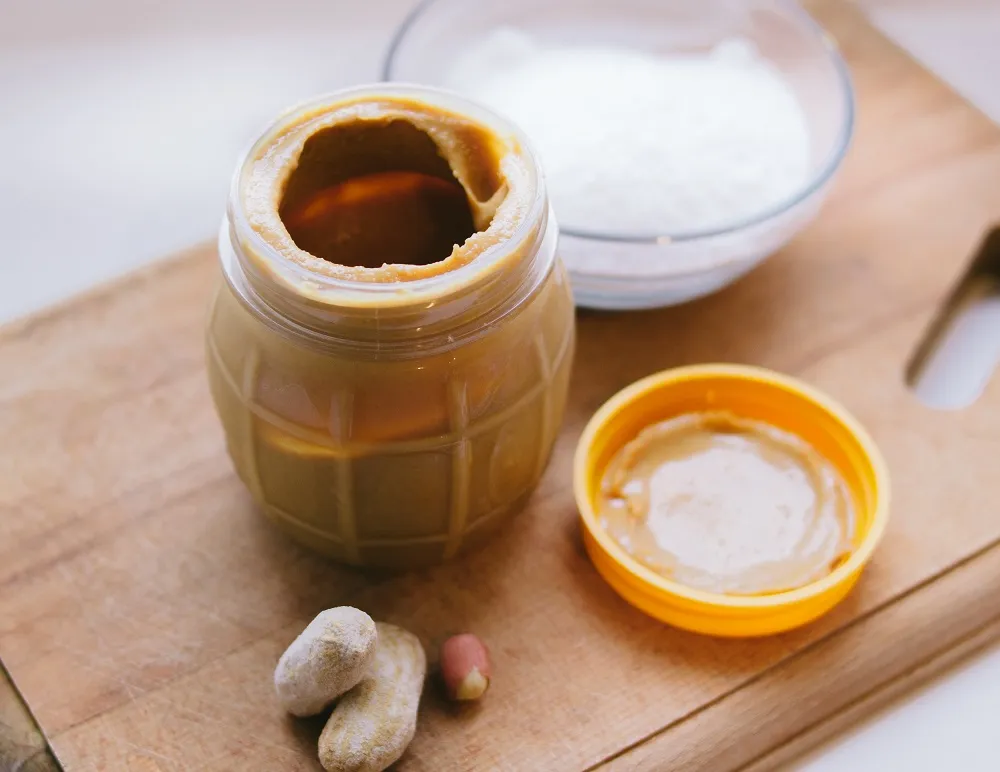
Dipping celery sticks in nut butter, such as peanut butter, is another satisfying snack to keep you energised until your next meal. Celery sticks are naturally very low in calories and carbohydrates.
One cup of raw celery provides: (USDA, 2019)
- Calories: 14.1
- Protein: 0.7g
- Fat: 0.2g
- Carbohydrates: 3g
- Fibre: 1.6g
Pairing celery sticks with one to two tablespoons of nut butter adds protein and healthy fats to your snack to curb hunger and promote blood sugar control.
One tablespoon of peanut butter provides: (USDA, 2019)
- Calories: 94.4
- Protein: 3.8g
- Fat: 8g
- Carbohydrates: 3.5g
- Fibre: 1.1g
Hard-boiled eggs
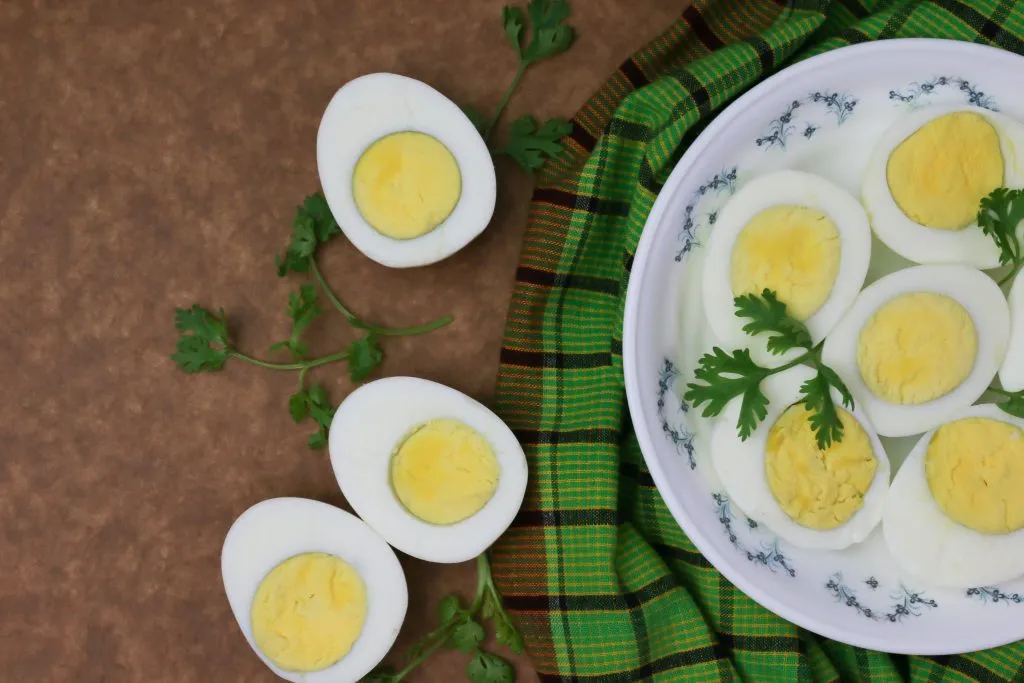
Hard-boiled eggs are a great high-protein snack for diabetics.
One large hard-boiled egg provides: (USDA, 2019)
- Calories: 77.6
- Protein: 6.3 g
- Fat: 5.3g
- Carbohydrates: 0.6g
- Fibre: 0g
Eggs are also filling and can help reduce your overall daily calorie intake, which may lead to weight loss (Keogh, 2020). If you’re overweight, a modest weight loss of 5-10% of your body weight can improve your blood sugar control and decrease the need for glucose-lowering medications (ADA, 2015)(CDC, 2022).
Handful of almonds
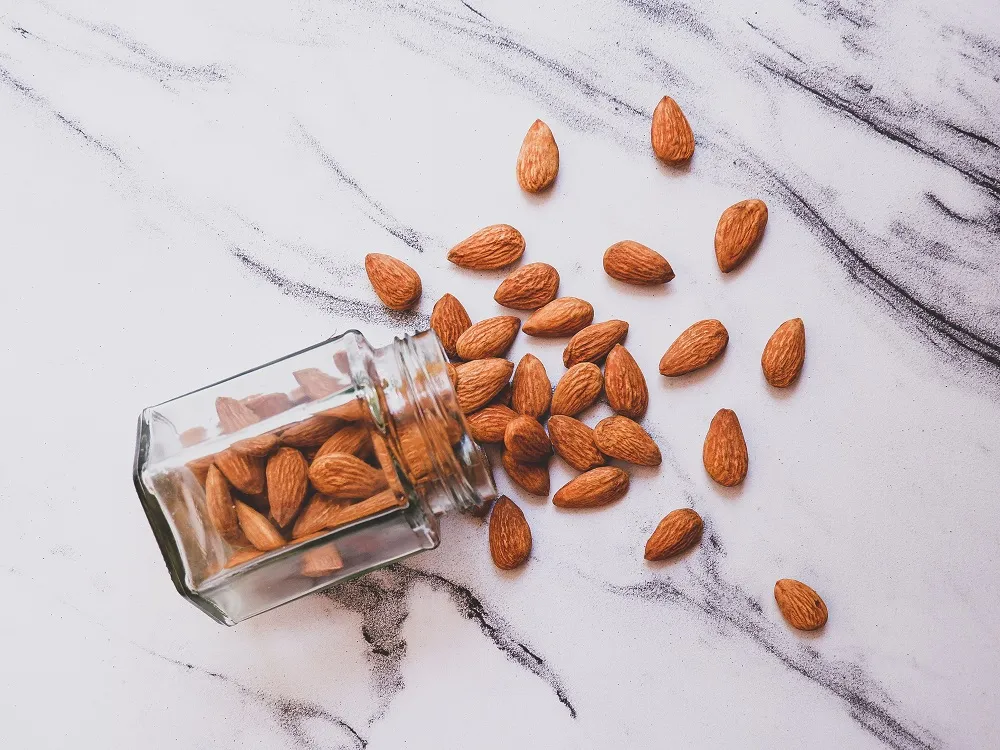
Almonds are an easy, nutrient-dense, on-the-go snack. Research shows that almonds and other tree nuts can improve blood sugar control for people with type 2 diabetes. Almonds are low in carbohydrates and high in magnesium and heart-healthy monounsaturated fats, which are thought to promote blood sugar control (Viguiliouk, 2014). They’re also a good source of other health-promoting nutrients, including fiber, protein, riboflavin, and vitamin E (Barreca, 2020).
One handful, or about 23 almonds, provides: (USDA, 2019)
- Calories: 164
- Protein: 6g
- Fat: 14.1g
- Carbohydrates: 6g
- Fibre: 3.5g
- Magnesium: 76.5mg, 18% of the daily value
- Riboflavin: 0.32mg, 25% of the daily value
- Vitamin E: 7.26mg, 48% of the daily value


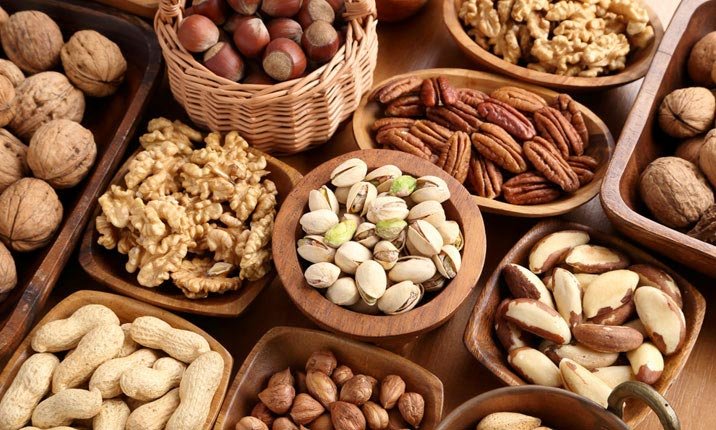
1 Comment
Pingback: Everything to know about dark circles and how to remove them